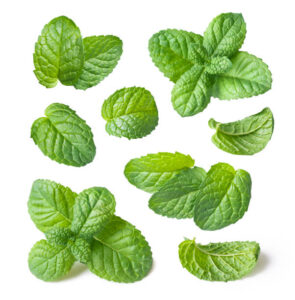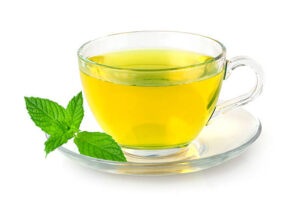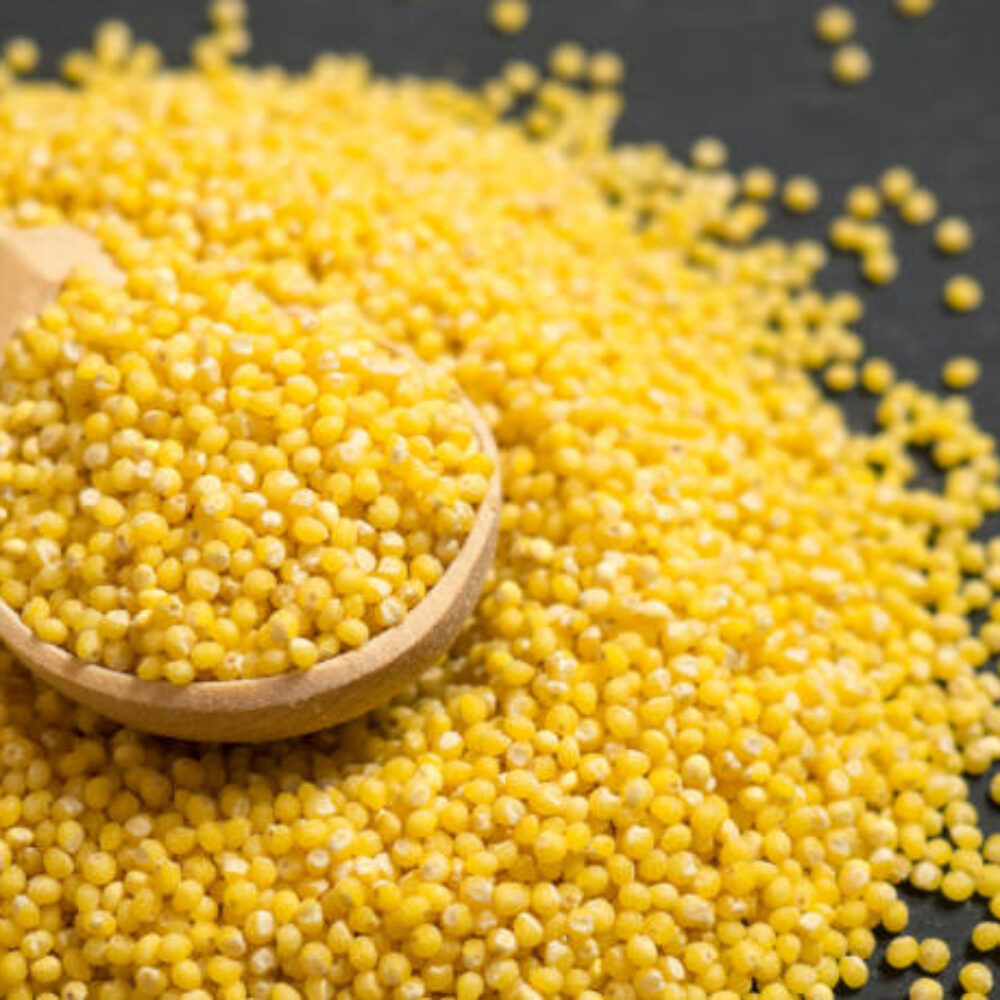Mint leaf is most popularly known as a remedy for digestive problems. Some limited research suggests that peppermint oil in capsules may ease belly pain from irritable bowel syndrome (IBS).
Mint leaf contain ‘polyphenols‘, which give them medicinal properties. Mint leaves are beneficial for curing asthma and stomach upset.
On the other hand, mint leaves are low in calories, protein, and fat. Vitamin A, CRB complex, is found in mint leaf, which are essential ingredients for skin care and immunity.
Also, the leaves contain iron, potassium, and manganese; these minerals increase the level of ‘hemoglobin‘ in the blood and keep the brain functioning intact.

The Nutritional Value of Mint Leaf
Here’s the nutrition value of mint leaves (per 100 grams):
| Nutrient | Amount |
|---|---|
| Calories | 44 kcal |
| Water | ~85-90% |
| Carbohydrates | 8.4 g |
| Protein | 3.3 g |
| Fat | 0.7 g |
| Dietary Fiber | 6.8 g |
| Vitamin A | 4248 IU |
| Vitamin C | 31.8 mg |
| Vitamin B-complex | Trace amounts |
| Calcium | 199 mg |
| Iron | 11.87 mg |
| Potassium | 458 mg |
| Magnesium | 63 mg |
| Antioxidants | High |
Health Benefits of Mint Leaf:
1. Aids in digestion:
Mint leaf are rich in antioxidants, menthol, and phytonutrients. These ingredients aid in digestion by promoting the production of enzymes.
Mint leaf essential oil has strong antiseptic properties. It cools the stomach and helps fight against acidic foods, reducing stomach discomfort.
2. Improves Irritable Bowel Syndrome:
Irritable bowel syndrome (IBS) is a common gut disease characterized by signs like belly pain, gas, bloating, and changes in bowel patterns.
Although remedies for IBS often include dietary changes and medications, a study indicates that peppermint oil as an herbal medication might also be helpful. Peppermint oil has a compound called menthol, which is supposed to help IBS symptoms through its relaxing impacts on the muscles of the digestive tract.
A study of nine investigations, including over 700 patients with IBS, found that consuming peppermint oil tablets exceptionally enhanced IBS symptoms compared to placebo tablets.
One study showed that 75% of patients who took peppermint oil for four weeks experienced improvements in IBS symptoms, compared to 38% in the placebo group.
Notably, nearly all research showing relief of IBS symptoms used oil capsules rather than raw mint leaves.
3. Mental relief:
Mint leaves are a primary ingredient in aromatherapy. Its intense aroma relieves stress and depression, promoting calmness by activating the body’s stress-relieving abilities and regulating cortisol levels in the blood.
Furthermore, inhaling the essential oil of mint leaves releases serotonin into the bloodstream, which reduces emotional instability and depression.
4. Relieving constipation
Mint leaves are very beneficial for relieving constipation. If you practice drinking one glass of mint water daily, your constipation will reduce day by day.
Other uses of mint leaves include:
5. Relief from headaches: Menthol in mint leaves relieves pain by relaxing muscles.
6. Skincare: Mint leaves are effective in treating acne due to their anti-inflammatory and antibacterial properties.
7. Oral health: Mint leaves are beneficial for freshening breath.
8. Improves memory: Mint leaves are believed to enhance cognitive abilities such as intelligence, alertness, and memory when consumed regularly.
Scientific Studies and References:
1. Peppermint Oil and IBS Relief
- Study: A systematic review of the effects of peppermint oil on IBS symptoms.
- Source: Clinical Gastroenterology and Hepatology (2007).
Read Study
2. Antioxidant Properties of Mint Leaves
- Study: Analysis of phenolic content and antioxidant activity in mint leaves.
- Source: Journal of Agricultural and Food Chemistry (2001). Read Study
3. Mental Health Benefits of Aromatherapy
- Study: The effects of peppermint essential oil on stress and depression levels.
- Source: Evidence-Based Complementary and Alternative Medicine (2013). Read Study
4. Vitamin and Mineral Composition of Mint Leaf
- Study: Nutritional profile of mint leaves, emphasizing their micronutrient content like iron, potassium, and magnesium.
- Source: USDA National Nutrient Database.
Read More
5. Skincare and Antibacterial Properties
- Study: Mint’s role in treating acne and its antibacterial activity.
- Source: Journal of Ethnopharmacology (2009).
Read Study
Mint Leaves Tea and Mint Water

Mint leaf tea is very beneficial for improving digestion power. If you drink a cup of mint leaf tea every morning, it will be beneficial for your gut health.
Drinking mint tea can relieve symptoms of irritable bowel syndrome (IBS). By drinking this tea, your stomach will be relaxed. You can drink this tea every day without any side effects.
You can also drink refreshing mint water, which also helps to improve your digestive power. Now, we will discuss how to make mint tea and mint water at home.
Making mint tea at home:
Ingredients:
- 8-10 mint leaves
- 2 cups water
- Sugar (to taste)
- A pinch of lemon (optional)
Instruction
- First, boil water in a pot.
- Then add 8-10 mint leaves to it.
- Let the water boil for a while.
- After some time, turn off the stove and cover the pot.
- After 5/7 minutes, filter the tea.
- Now, you can add honey if you want.
- Enjoy a healthy sip of it every morning.
How to make mint water with mint leaves
Drinking mint water is very beneficial for your health. If your day starts with drinking mint water, you will get many benefits. Here’s how to make mint water at home:
- First, put a fresh glass of water in the fridge overnight.
- In the morning, add some fresh mint leaves to this water.
- If you want, you can add lemon to it.
- Then, shake it for some time and drink it.
If you want to lose weight, you can drink mint water. The best time to drink this water is in the morning, as it detoxes your stomach properly. You can also drink this water at any time of the day.

We’d love to hear your thoughts on how mint leaves have helped you! Leave a comment below, and don’t forget to share this post with friends or family who might help with these amazing benefits. Also, subscribe to our newsletter for more tips, recipes, and natural health tips delivered straight to your inbox!
Frequently Asked Question
1. Is it OK to eat raw mint leaves?
Yes, it’s perfectly fine to eat raw mint leaves! They are safe, refreshing, and packed with health benefits, like helping digestion, freshening your breath, and adding flavor to dishes. Just rinse them well before eating.
2. When should you not eat mint leaf?
Mint leaf can relax the muscles at the top of your stomach, which may worsen heartburn. Some people may have an allergy to mint, causing itching or swelling. Mint can interact with medications like antacids or blood pressure drugs, so check with your physician.
3. How many mint leaves can you eat in a day?
You can safely eat about 10–15 mint leaves per day as part of your diet. This amount is enough to enjoy the benefits without overdoing it. Eating too many might irritate your stomach or cause mild digestive issues for some people.
4. Can you eat mint stems?
Yes, you can eat mint stems! Young, tender stems are soft and flavorful, like the leaves, and work well in salads, teas, or garnishes. However, thicker, older stems can be tricky and woody, so they’re better for flavoring soups or drinks but not for eating directly.
5. How to use mint leaves for bad breath?
- Chew 2-3 fresh mint leaves for a few minutes to freshen your breath instantly.
- Brew mint leaves in hot water, let it cool, and sip it. The natural oils help fight odor-causing bacteria.
- Add a handful of mint leaves to a bottle of water and drink it throughout the day
- Blend mint leaves with water, strain, and use it as a natural rinse.



